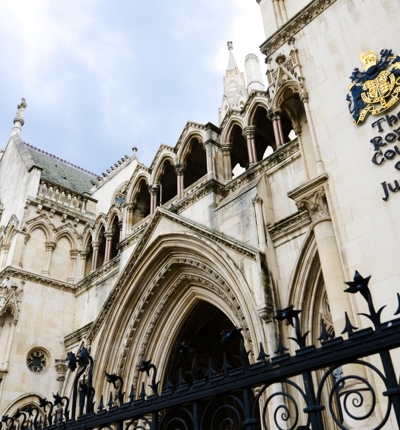
High Court rules chicken catcher bosses exploited workers in modern slavery case
High Court rules in favour of Lithuanian men modern slavery case and against "worst gangmaster ever"
Posted on 08 April 2019
The High Court has ruled in favour of a group of Lithuanian men who were put to work in terrible conditions by a British company, catching chickens at farms all over the country. The chickens were caught for businesses such as Noble Foods, a leading egg producer and owner of the Happy Egg brand.
The Court ruled that the workers who brought the case were subject to a gruelling and exploitative work regime by their employer, DJ Houghton Catching Services, and by its sole director, Darrell Houghton, and the company secretary, Jackie Judge.
The Court found the workers were obliged to work shifts without respite, sleeping in the back of a mini bus between farms, and worked massively more hours than the entirely fictional number of hours recorded on their payslips. The Court also found that wages were withheld as a form of punishment, that a Lithuanian “enforcer” was used to keep workers under control, and that workers who complained could be evicted into the street.
The judgment follows a four day preliminary issue trial and summary judgment application in February 2019. At trial, workers gave evidence of their appalling living and working conditions, and how their wages could be withheld for entirely spurious reasons, such as leaving a cup in the sink, being new to the job, or drinking alcohol at home. The workers claim they were trafficked to the UK, having paid a fee to middle-men and promised decent work that bore no correlation to what awaited them on arrival.
Today the Court upheld the workers’ summary judgment application against the company, and found it liable for serious contractual and statutory breaches, including the failure to pay the applicable minimum wage, the charging of unlawful “employment fees”, the arbitrary withholding of wages, and the failure to pay holiday pay. Although the men signed no employment contracts, these breaches were committed in breach of contractual terms under the Agricultural Wages Act 1948 and the related Agricultural Wages Orders.
In a landmark decision, the Court also ruled that Mr Houghton and Ms Judge were personally liable to the workers for the serious contractual and statutory breaches of their company. The Court ruled that they had caused the company to act in breach of its obligations and knew that this was what they were doing.
Giving judgment, the Honourable Mr Justice Lane held that Mr Houghton and Ms Judge “cannot...have honestly believed that what was being done by them to the chicken catchers was morally or legally sound” [para 78]. Further, the court found that in acting to maximise their own profit, Mr Houghton and Ms Judge had ruined the reputation and the fortunes of the company, as well as causing it to lose the gangmasters’ licence it required to employ the workers.
The judgment has wider significance for all officers of companies, given that it highlights that they may be personally liable to pay damages if they cause their company to operate in breach of contractual and regulatory requirements, particularly if such breaches seriously harm the reputation or financial viability of their company.
In the judgment handed down today the Honourable Mr Justice Lane said:
“I am in no doubt whatsoever, having heard the evidence, that both of them [Darrell Houghton and Jackie Judge] “actually realised” that what they were doing involved causing [DJ Houghton Catching Services Ltd] to breach its contractual obligations towards the claimants. What they did was the means to an end. There is no iota of credible evidence that either defendants possessed an honest belief that what they were doing would not involve such a breach.” [para 132]
The Claimants are represented by law firm Leigh Day and counsel John Hendy QC and Harry Lambert.
Mary Westmacott, solicitor from Leigh Day who is representing the claimants, said:
“This judgment is a salutary warning to company officers that they may be made personally liable for exploitation of their workers. I’m delighted that the individuals responsible for my clients’ appalling exploitation have finally been held to account in court. This case highlights how victims of modern slavery are hidden in plain sight in the UK. Everyone can help prevent this abuse by being vigilant and reporting it.”
The group of men have outstanding civil claims against the company and Houghton and Judge for alleged injuries suffered during the course of their work, and harassment claims in relation to the gruelling regime, threats of eviction and violence they were subjected to. There are also further claims outstanding against the Gangmasters and Labour Abuse Authority (previously the Gangmasters Licencing Authority, or GLA). The claims will be dealt with once the damages in the contractual claims have been determined.
Background
In June 2016, in separate proceedings against the same defendants, the High Court ruled that the company had failed to pay a different group of six Lithuanian workers the due minimum wage, had made unlawful deductions from wages, and failed to provide adequate facilities to wash, rest, eat and drink. The case settled with no further admission of liability. These workers were also represented by Leigh Day.
In 2014, the GLA, as it then was, issued a press release describing the company DJ Houghton Limited, as "the worst gangmaster ever."
Amended on 31 August 2022.

